Spring: n/a
Summer: n/a
Part-time (Daytime)
Overview
In the MA in Educational Studies, you'll have the flexibility to design a program of study specifically around your interests and goals in Education. The core focus of the program on critical theory allows students to build a course of study grounded in racial and social justice across educational fields. Past students have explored contemplative learning, the intersectionality of identities and education, educational policy, critical theory in STEM education, and disability services in higher education,
Students in the program include K-12 teachers interested in furthering their intellectual and professional development; community activists who see education as key to societal health; and educators in any setting who would like to conduct research on learning and instruction.
Program Outcomes
As a student in the program, you will be matched with faculty advisors who will work with you to create your plan of study, selecting relevant courses from the Department of Education and across the university. You will also have the opportunity to plan internships, independent studies, or projects.
There are many possible topics for your program of study, but some examples include:
- Critical Educational Studies: Study race, class, gender, and other categories of identity, culture, and institutional and structural power as they relate to education.
- Social-Emotional Learning: Prepare to promote and advocate for students' equitable access to social and emotional learning in schools.
- Environmental Studies Education: Study learning in the field of environmental justice and policy.
Application Requirements
- Application fee
- Resume/CV
- Personal Statement elaborating on your interest to pursue a MA in Education. What program of study do you have in mind and why? What are your goals? How will the Tufts program help you achieve these goals?
- Official TOEFL, IELTS, or Duolingo English Test, if applicable
- Transcripts. One official copy of each of your college transcripts
- Three Letters of Recommendation. Collectively the letters should address your capacity to accomplish graduate-level studies.
Tuition & Fees
GSAS bills tuition using a per-credit billing model, meaning you are billed for the number of credits you take each semester. This billing model is used to provide students better flexibility so they may "pay-as-they-go".
| Tuition* | $1,270 per credit |
| Total Credits Required | 30 |
| Enrollment Status | Part-Time: 3-6 credits (typically 1-2 courses) Full-Time: 9+ credits (typically 3 or more courses) or qualifying enrollment criteria (assistantships, internships, or continuation courses, etc.) |
Estimating Tuition Costs for this Program
This example pathway outlines estimated tuition costs per semester using a typical full-time course load. This is one possible pathway to completion; actual credits, costs, enrollment status, and degree completion time may vary based on a student’s course load.
| Full-Time Pathway | Fall | Spring | Total |
| Year 1 | 9 credits | 9 credits | 18 credits |
| $11,430 | $11,430 | $22,860 | |
| Year 2 | 7 credits | 5 credits | 12 credits |
| $8,890 | $6,350 | $15,240 | |
| Estimated Total Tuition Before Aid* | $38,100* | ||
Note: this example does not account for any scholarships that may be awarded at the time of admission. GSAS offers generous merit- and need-based tuition scholarships for qualified applicants. A list of funding opportunities is provided below.
*Estimated based on 2025-2026 tuition rates. Rates are subject to change each academic year. For further information about the full cost of attendance, including health insurance, fees, and estimated indirect costs (housing, transportation, etc.), visit Student Financial Services.
Financial Aid & Funding Opportunities
At Tufts University, we believe that every qualified applicant should have the opportunity to pursue graduate study, regardless of financial circumstances. We are committed to helping you navigate the financial aspects of your education and strive to make graduate school accessible through a variety of support options.
Scholarships and Awards Available for this Program
- Merit- and need-based tuition scholarships for master’s programs: To be considered, be sure to indicate your interest within the Financial Aid section of your application.
- The Future Leaders Fellowship is a full-tuition scholarship for outstanding full-time master’s students and entry-level OTD students. Future Leaders Fellows are selected by the GSAS Dean following their admittance to Tufts.
- City Year Corps members, alumni, and staff are eligible to receive a minimum scholarship award of 25% off tuition.
Work Opportunities and Awards
- There are various graduate assistantships and work opportunities available for Master’s students across Tufts.
- The Graduate Student Open Access Publishing Fund provides financial support to students who want to publish their work open access.
- The Graduate Student Research Competition provides funding for expenses including equipment, materials, and supplies; research participant compensation; and expenses of travel to conduct research.
- The Graduate Student Conference Reimbursement Fund is available for students to travel to present or attend at a conference or professional meeting.
Visit our Graduate Financial Aid page for information on loans and financing options.
Career Outcomes
Average Salary: $95K - $157K
Would Recommend the Program: 100%*
Overall Satisfaction with Tufts Grad Program: 100%
*Sources: GSAS-SOE Graduate Exit Survey 2020 - 2021 and Academic Analytics (Alumni Insights)
Faculty
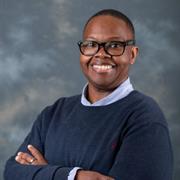
Shameka Powell

Shameka Powell
Research/Areas of Interest: Educational Equity, Teacher Education, Critical Race Theory, Social Context of Schooling, Urban Schooling, Multicultural Education
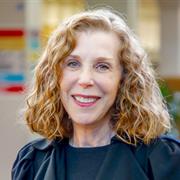
Susan Barahal

Susan Barahal
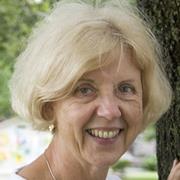
Linda Beardsley

Linda Beardsley
Research/Areas of Interest: Linda's research interests include developing effective partnerships between higher education and public schools, training teachers to teach in urban settings, and integrating technology into classroom teaching. Her articles and book reviews have been published in Childhood Education, International Journal of Qualitative Studies in Education, The Newslink, Helping Young Children Learn, and Massachusetts Department of Education publications.
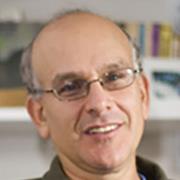
Steven Cohen

Steven Cohen
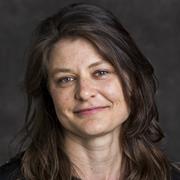
Julia Svoboda

Julia Svoboda

Brian Gravel

Brian Gravel
Research/Areas of Interest: Brian's research focuses on students' representational practices in science and engineering studied using design-based research on learning technologies and socio-technical learning environments. This work builds from the development of SAM Animation, which is stop-motion animation software developed at the Center for Engineering Education and Outreach. Brian co-developed SiMSAM: a multi-representational toolkit to support creative computational modeling activities for middle grades learners. Curious about design, play, and making, his work involves partnerships with researchers and educators to explore dimensions of STEM learning at the intersections of people, materials, representations, and cultures. One such example is starting Nedlam's Workshop in 2014, a makerspace in an urban high school that emphasizes multidisciplinary inquiry. Through this work, he developed both empirical and theoretical contributions focused on heterogeneous design, STEM literacies in making, and analyses of how communities of makers organize to support each other's practices. Collectively, his research complicates and expands the field's understandings of how inquiry unfolds in making contexts, and how makerspaces can be a site for equitable and dignified participation in STEM. Brian's newer work involves teachers engaging in playful computational making to study how they (re)negotiate relationships to inquiry, disciplines, computational tools, and heterogeneous ways of knowing. This includes the exploration of geographies of care and responsibility that support STEM learning environments that center wellbeing. His scholarship examines the many facets of making and making spaces in schools, both in the United States and abroad. Brian's collaborative research has been funded by the National Science Foundation, the LEGO Foundation, and the Spencer Foundation. Selected Publications Gravel, B. E., & Puckett, C. (2023). What shapes implementation of a school-based makerspace? Teachers as multilevel actors in STEM reforms. International Journal of STEM Education. https://doi.org/10.1186/s40594-023-00395-x Gravel, B. E., & Svihla, V. (2021). Fostering heterogeneous engineering through whole-class design work. Journal of the Learning Sciences, 30(2), 279–329. https://doi.org/10.1080/10508406.2020.1843465 Gravel, B. E., Tucker-Raymond, E., Wagh, A., Klimczak, S., & Wilson, N. (2021). More than mechanisms: Shifting ideologies for asset-based learning in engineering education. Journal of Pre-College Engineering Education Research 11(1), 276–297. https://doi.org/10.7771/2157-9288.1286 Tucker-Raymond, E., & Gravel, B. E. (2019). STEM literacies in makerspaces: Implications for learning, teaching, and research. Routledge.
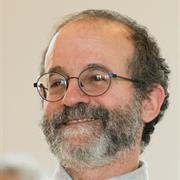
David Hammer

David Hammer
Research/Areas of Interest: Research on learning and instruction. My research is on learning and teaching in STEM fields (mostly physics) across ages from young children through adults. Much of my focus has been on intuitive "epistemologies," how instructors interpret and respond to student thinking, and resource-based models of knowledge and reasoning.
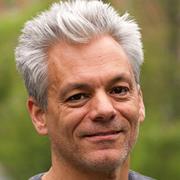
Andrew Izsak

Andrew Izsak
Research/Areas of Interest: The psychology of mathematical thinking, teachers' and students' understanding and use of inscriptions, multiplicative reasoning, applications of psychometric modeling for assessment and research in mathematics education.
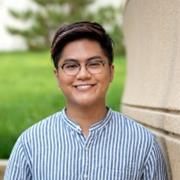
Justin Jiménez

Justin Jiménez
Research/Areas of Interest: critical education studies, critical race feminisms, psychoanalysis and education, queer studies, poststructuralism, French theory, continental philosophy, critical theory (Frankfurt School)
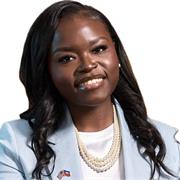
Takeshia Pierre

Takeshia Pierre
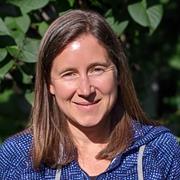
Erin Seaton

Erin Seaton
Research/Areas of Interest: Climate change and schooling, school-based mental health, human development, teaching and learning, adolescence, gender, equity in education, special education, qualitative research methods, child and adolescent literature and literacy, writing
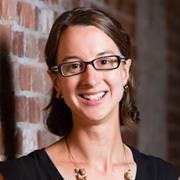
Kristen Wendell

Kristen Wendell
Research/Areas of Interest: learning sciences, engineering education, design practices, classroom discourse, engineering knowledge construction